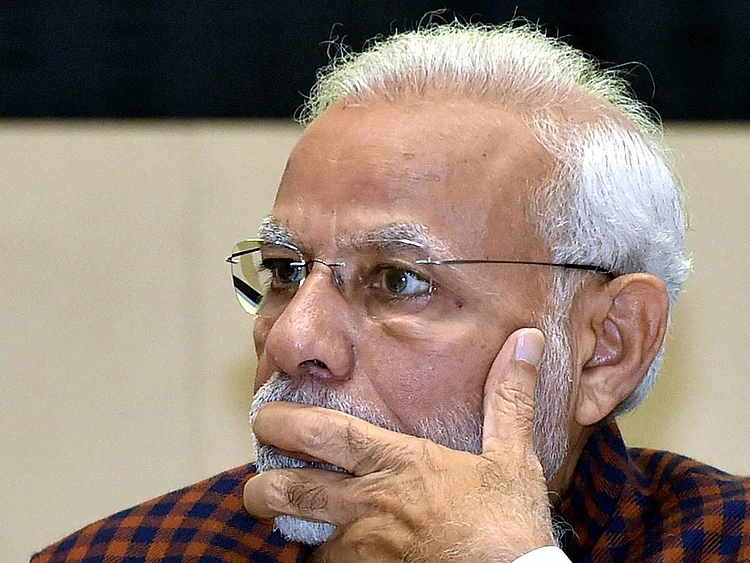Prime Minister Narendra Modi has embarked on a campaign to persuade Indians to reduce the use of cooking oil by 10%. The reduction in calories, he hopes, will help address India’s growing obesity epidemic.
Every third woman in urban India is obese, according to the National Family Health Survey 2019-21 and the number might be even more alarming by now. For urban men, it’s only a little less, at 30%. In rural India too, the data is shocking: every fifth person is obese.
Using a little less oil in cooking is not going to be enough to address the problem. It is going to take a lot more than just a 10% reduction in cooking oil to bring down obesity rates in India. It will need to address India’s overproduction and overconsumption of rice and wheat, finding ways to eat more of our traditional millets.
Social campaigning
This is not the only example of PM Modi undertaking social campaigning. He has in the past persuaded people to help clean up our cities, has started an International Yoga Day to make people exercise more often, has an annual programme to tell young students to go easy on examination stress, and has many social messages on his fortnightly radio programme, Mann Ki Baat.
These old programmes have lost their novelty but have not been discontinued because consistency matters a lot in politics. Meanwhile, new ones like this war against obesity are added.
It needs to be asked if these social campaigns help him win votes.
His critics dismiss them as ‘drama’ and as for votes, they say the votes all come because of the Hindu nationalist ideology, the party’s larger worker base and the resources it has to campaign.
Yet it does lose state elections now and then.
Building long-term trust
What is unchanging is his own ratings and trust among the public. Now in his third term, he may not obsess over supporters and critics alike the way he used to in 2014, but continues to be the main reason for trust among the BJP’s voters.
Even when the BJP suffered surprise setbacks in the Lok Sabha in some key states, voters were not speaking against PM Modi. They were upset with the party for things like repeating the unpopular MP.
Hindu nationalism can only explain his popularity among core voters. Excessive campaigning can actually backfire if the party is unpopular. As can any unfair practices in elections.
What keeps his ratings high is the sense that he is concerned about the people. Even the uncertain, unhappy voter says at least he is trying. There are very few leaders even within the BJP who can claim to have such an image, in the centre or the states.
Part of this is his oratory, part of it is his use of symbolism (both religious and non-religious), but a big part is this social campaigning. When a woman is pouring cooking oil on the pan next time, she will be reminded of PM Modi’s advice regardless of whether she likes the advice. She will likely feel he’s worried about my waistline.
This may seem like a rather obvious point to make but it is not obvious to most politicians, who are mostly busy abusing and attacking each other, constantly doing negative politics. “People don’t like too much politics,” a politician once told me. It is instructive to think about how “Mann Ki Baat” has no politics at all, only social messaging.
Overcoming cynicism
‘What is it that gets votes?’ That is the eternal question every politician asks every day. Politicians become so cynical that they start assuming that development, welfare, progress and prosperity don’t get votes. What gets votes, many conclude, is identity politics, caste and religion, attacking the opponent to destroy their image, doing gimmicks, and so on.
When they deviate even a little from this cynicism, they see results.
Rahul Gandhi’s Bharat Jodo Yatra gave him political dividends. It did a lot to reduce the negativity in his image. But he lost the momentum after the Lok Sabha elections because there has been no campaign. He keeps doing YouTube videos to keep up his mass engagement, but these videos despite the large views they get don’t translate into high ratings because they are not accompanied by any campaigns.
Arvind Kejriwal is a cynical politician who was perhaps himself surprised by the positive buzz created by his colleagues’ efforts in education and health in Delhi. The campaign over these two created a positive sentiment for him and his party across India and helped the Aam Aadmi Party win Punjab in 2022.
These examples are enough to answer the question: what do voters want? They want you to care about their lives. As simple as that.
Network Links
GN StoreDownload our app
© Al Nisr Publishing LLC 2026. All rights reserved.
